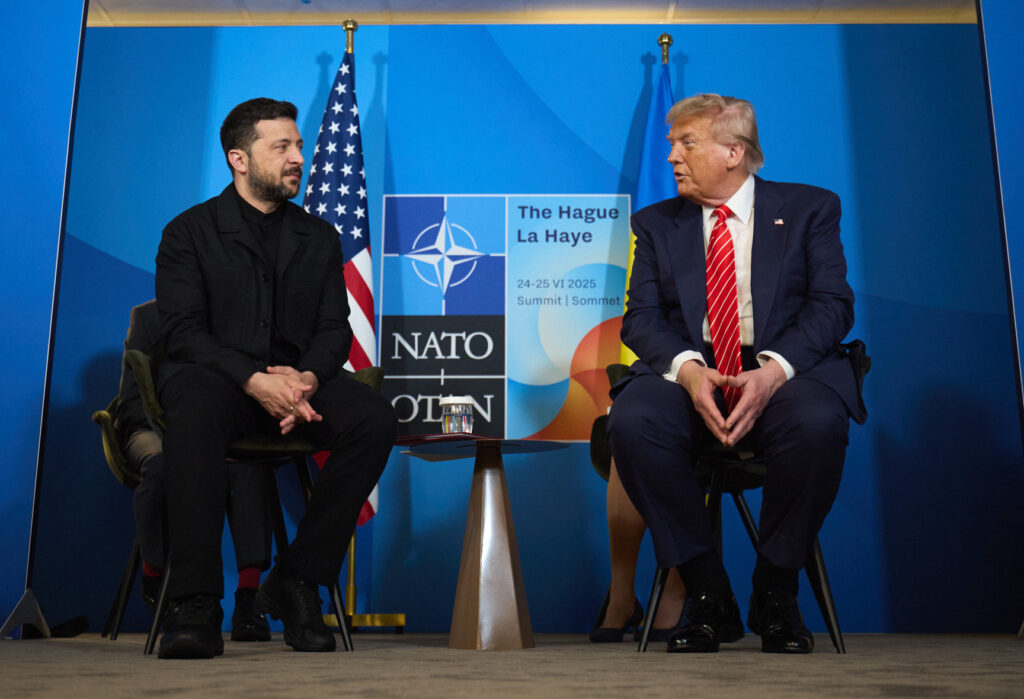It’s tempting to see Donald Trump’s latest move—vowing to resume Patriot missile deliveries to Ukraine and hinting at a major statement on Russia—as a sudden burst of clarity, a leader finally waking to the grim reality of Vladimir Putin’s ambitions. But let’s not kid ourselves: this shift, announced as he headed to Texas, feels less like a epiphany and more like a grudging pivot, forced by the sheer weight of atrocities that can no longer be ignored. The attack on a Kharkiv maternity hospital, its walls shattered by Russian drones, might have been the tipping point—a scene so visceral it pierces even the thickest political armor.
What’s troubling is how long it took to get here. For months, the Kremlin has unleashed a relentless barrage, with hundreds of drones and missiles raining down in a single night, turning civilian lives into collateral damage. A Ukrainian lawmaker from Odessa, speaking with a mix of relief and urgency, framed the Patriot systems as lifelines—each one a chance to shield the vulnerable from a war that’s grown increasingly barbaric. Yet he’s right to temper his optimism: a handful of missiles, whether 10 or 20, won’t stem the tide against an enemy firing 500 at a clip. Hundreds are needed, he argues, to match the scale of Russia’s aggression. That gap between hope and reality hangs heavy, a reminder that good intentions alone won’t stop the carnage.
You get the picture: this isn’t just about military hardware. It’s about a leader—Trump—grappling with a miscalculation. Early on, his administration wavered, pausing aid shipments amid concerns over depleted U.S. stockpiles, a move that emboldened Putin to double down. The Russian leader, sensing weakness, ramped up his attacks, betting that Trump’s dealmaking instincts would prioritize a quick peace over sustained support. That bet may have backfired. Reports suggest Trump overruled his own defense secretary, pushing to restart those transfers and even contemplating an uptick in aid. It’s a rare break from his own team, hinting at a frustration that’s been brewing beneath the surface.
Frankly, it’s hard not to wonder if Trump’s growing vocal irritation with Putin stems from a personal sting. The former president, who once seemed to view the Russian leader as a strategic ally or at least a kindred spirit, now sounds fed up—disappointed, even, by a game of cat and mouse that’s left him outmaneuvered. A leaked phone call reportedly captured him chiding Putin for the civilian toll, a tone shift that feels less theatrical and more genuine. Yet there’s a caveat here: Trump’s affections, or lack thereof, are notoriously fickle. His lingering unease with Ukraine’s leadership, rooted in old political grudges, might still pull him back from a full commitment.
That should be a wake-up call for anyone banking on this as a definitive turn. The promised Monday announcement—teased as a potential game-changer—could bring sanctions, perhaps targeting Russia’s oil and gas lifeline, which fuels its war machine. A Ukrainian voice on the ground sees this as a chance to force Putin to the negotiating table, but the Senate’s current package, while bold on paper, feels more symbolic than seismic. The Russian economy, already strained with nearly half its budget funneled to the military, might buckle under tougher measures—yet the U.S. hesitates to unleash the full force of frozen Russian assets. It’s a half-step, not a leap, and that hesitation could undermine the very pressure Ukraine needs.
What’s more, Europe’s role adds another layer of complexity. France and Britain’s recent defense pact, including talk of a nuclear deterrent, hints at a coalition willing to step up—but only, it seems, when peace is in sight. That’s a frustrating disconnect for Ukraine, which craves more than words. Macron’s earlier musings about troops on the ground, not to fight but to secure borders, have fizzled into disappointment. Why, asks the Odessa MP, can North Korea send soldiers to Russia’s aid, but Europe can’t offer boots to train or protect? The answer lies in a continent still wrestling with its own existential fears, leaving Ukraine to bear the brunt alone.
This moment feels like a hinge. Trump’s shift, driven by outrage or pragmatism or both, signals a recognition that Putin’s games—promises of peace masking relentless aggression—can’t be met with half-measures. The image of a maternity ward in ruins, mothers and newborns caught in the crossfire, demands more than a policy tweak. It demands a stance. Yet the road ahead is fraught. Will Monday’s announcement deliver the crippling sanctions Ukraine craves, or will it be another flourish of rhetoric? Will Europe finally match its rhetoric with action, or continue to dither?
The truth is, this conflict won’t end with a single speech or a shipment of missiles. It requires a sustained resolve, a willingness to confront not just Russia’s actions but the West’s own ambivalence. Trump’s pivot, however imperfect, is a start—a crack in the facade of indifference. Whether it hardens into something enduring depends on the days ahead. For now, the stakes are clear: lives hang in the balance, and the world is watching.
